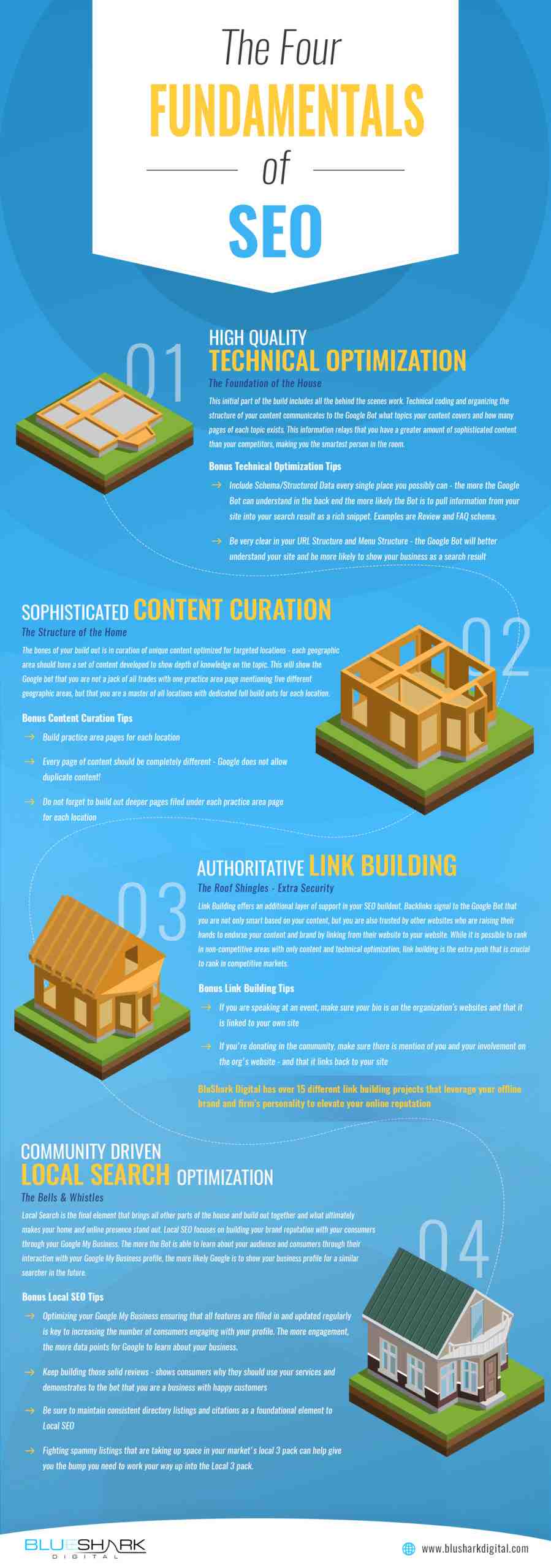Key Tips for Search Engine Optimization – Efe Dickson
SEO is a crucial component of marketing that helps increase the website’s visibility for relevant searches. You’re doing nothing right if your website doesn’t appear on the first page of the search engine results page. Your problems will be solved by this post.
Before we continue, we just want to make you aware that this captivating article is provided by The Watchtower, a leading web design company in Dubai.
If you want to make your website the benchmark for search engines and users, check out our top 10 SEO recommendations to put your website first.
So let’s start with our first tip.
Voice search will impact searches in 2021. In the United States, 55% of homes will have a smart speaker by 2022, dailogtech.com predicts.
In such a scenario, if you want to optimize voice search, follow the steps below:
Voice search greatly improves the user experience. Since we use it so much, search engines like Google are focusing on voice search optimization.
Fast loading websites are preferred in Google Voice Search. In this case, you must consistently check the following:
A great user experience on your website shows that your target audience can find you easily.
Knowing these 8 mobile-friendly optimization strategies is crucial for marketers to realize the importance of making their website mobile-friendly. A mobile-friendly website will no doubt help with ranking.
Google’s mobile-friendly changes resulted in a significant shift in website rankings.
Check out Google’s free mobile-friendly test to see how successful your mobile site is. Also check out the Google Search Console mobile usability rating.
EAT stands for expertise, authority and trustworthiness. These components help determine whether a webpage contains quality content.
According to Google, “Content quality is an important element in ranking on search engine results pages.”
But what does Google mean by “quality”?
In layman’s terms, information that conforms to the Google EAT principle will rank better.
Google’s algorithms are used to deliver the best results to consumers.
These results are displayed at the top of the page. Google selects the best answer from a third-party website and presents it in the featured snippet using a programmed algorithm.
The following are some of the top strategies for improving featured snippets:
Image optimization can help your website appear in search engine image carousels.
Remember to use high-quality photos, relevant images, and an appropriate description for your image file.
As spiders become more adept at crawling, add visuals to your sitemap. Using alt tags also makes it easier for crawlers to categorize photos.
If an image is not visible on a user’s screen, alt text is provided instead.
Google uses alt text to help users understand the context of images.
The interpretation of a term is what semantically related keywords are.
A website’s ranking is more likely to be influenced by semantic keywords. We associate them with the essential keywords and help generate proper traffic from the SERPs.
Instead of just focusing on keywords, optimize content using topic clusters.
Choose structured data and semantic keywords carefully.
Alternatively, a thorough keyword tool can be used to complete the process.
Google said in 2016 that developing quality links is one of the top three ranking signals.
Always prioritize quality over quantity when linking to your content.
Here are a few handy strategies that will greatly improve the number of links pointing to your site:
Cutting-edge SEO marketing strategies can only be employed by professionals like The Watchtower – a leading SEO company in Dubai and a magic hand in all things digital marketing, web development, web design and total IT solutions.
Local SEO focuses on increasing the visibility of websites on search engine results pages (SERPs) in a specific area.
Since the strategy is more relevant to local audiences, optimizing local SEO will deliver more website traffic and conversions.
This method is the most effective way to sell your items to local customers.
“Relevance, distance, and notoriety are used to prioritize local results,” Google explains.
These criteria help Google find the best match for your search query. Therefore, your NAP information must be accurate and consistent.
How easy it is to navigate your website affects how well it performs in search results.
In recent years, Google has made user experience (UX) an important ranking element.
To better understand the idea, consider the following partnership between search engine optimization and user experience: user experience (UX) focuses on website visitors while search engine optimization (SEO) focuses on search engines.
As a result, both have the same goal in mind: to provide people with the best possible experience.
Let’s look at a few examples of how to use UX design to boost a website’s SEO performance:
One of the techniques that can help with SEO is schema markup. How should you use it to improve your website’s ranking?
Schema markup or Schema.org is one of the SEO techniques. It represents your website’s semantic vocabulary (aka microdata).
Schema markup helps search engine robots better understand your content.
How should it be implemented? You can insert microdata into the HTML code of your website.
It makes it easier for search engines to read your content and improves the way users see your website.
Search engine structured data was developed for users.
It provides data markup for all types of material. Your website should rank higher as a result.
It allows users to find neighboring shops or restaurants. It’s best to include these details in the schema as it lets Google know that a company has a physical store, which strengthens a website’s domain authority.
It enables search engine robots to better understand and evaluate the content of your website. Schema markup turns meaningless terms into useful statements.
It allows robots to provide users with search results tailored to their specific queries and intentions.
Using schema markup improves the user experience. Users can instantly get the essential content.
This leads to their satisfaction. As you may know, happy users mean better rankings in search results.
To guarantee that the campaign performs well, Google requires schema markup in the ad.
While it’s so important for Google Ads, it’s probably also important for SEO Company Dubai, even if it’s not a ranking criterion in and of itself!
After such an outstanding piece, you can rest assured that we’re taking website development to the next level – we not only deal with professionally – designed, easy-to-navigate websites, we also leverage the key elements of the modern online world Build a website that gets noticed! You can count on us for SEO, Web Design Company Dubai and Mobile App Development in Dubai.
Cost-per-click (CPC) is a paid advertising term in which an advertiser pays a publisher for each click on an ad. CPC is also called pay-per-click (PPC). CPC is used to determine the cost of displaying ads on search engines, the Google Display Network for AdWords, social media platforms, and other publishers.
How do you deliver keyword research to clients?

How to present a keyword research to a client
- Step 1: Create a visual mind map. …
- Step 2: Ask the customer to review it and give feedback. …
- Step 3: Repeat your keyword research and analysis. …
- Step 4: Conduct thorough keyword analysis & To plan.
What is the most important part of SEO?

The #1 Google Ranking Factor At WebTek, we say that the most important parts of SEO and the most important Google ranking factors are the website titles and heading tags. Titles are the main attraction of any website – they are your best chance to tell Google exactly what your website or webpage is about.
What are the 4 main components of SEO? Each component builds on and complements the others. The stronger the connections between each of the 4 SEO components – technical SEO, on-page SEO, off-page SEO and content – the better the results. When we are aware of the connections, we can better understand how best to use them effectively.
What is SERP in SEO?

A search engine results page, or SERP, is the page you see after entering a search query on Google, Yahoo, or any other search engine. Each search engine’s SERP design is different, but since Google is the most popular with over 80% market share, let’s focus on their features and algorithms.
Is Google a SERP? Search engine results pages (also known as “SERPs” or “SERPs”) are Google’s response to a user’s search query. SERPs typically include organic search results, paid Google Ads results, featured snippets, knowledge graphs, and video results. In other words, you give (or say) something to Google.
What’s the difference between SEO and SERP?
What is the difference between SEO and SERP? SEO is an acronym for Search Engine Optimization while SERP is an acronym for Search Engine Results Page. They are two different things but very closely related.
What are the three parts of SERP?
Three factors determine the appearance of sitelinks in a SERP: Type of search query – sitelinks appear primarily on branded terms. Site Traffic – Site links are more likely to appear on big brand sites with higher traffic.
Why is SERP important for SEO?
SERPs are important because results are indexed based on ranking signals, which determine where a website appears on the results page. Poor ranking in SERPs means less exposure, fewer clicks, less traffic and less revenue. This is why so much effort is put into SEO for websites.
What is the purpose of SERP?
Search engine results pages (SERPs) are the pages that Google and other search engines display in response to a user’s search query. They consist of organic and paid search results.
Why is SERP important for SEO?
SERPs are important because results are indexed based on ranking signals, which determine where a website appears on the results page. Poor ranking in SERPs means less exposure, fewer clicks, less traffic and less revenue. This is why so much effort is put into SEO for websites.
Why are SERP features important?
SERP features allow us to better understand user search intent. Search intent can be defined as the purpose or reason why a user performs a specific search.
What is SERP in SEO?
A search engine results page, or SERP, is the page you see after entering a search query on Google, Yahoo, or any other search engine. Each search engine’s SERP design is different, but since Google is the most popular – with over 80% of the market share – let’s focus on its features and algorithms.
What is the importance of being at the top of a SERP?
The benefits of ranking on the first search engine results page (SERP) are more valuable than ever: 60% of clicks are generated from the first three SERP results, while the average CTR (click-through rate) for first place is 36.4 is %, according to a study by Optify.
What are SERP links?
SERP features are elements that appear on the Google search engine results page that go beyond the traditional “10 blue links”. Common examples of SERP features are featured snippets, knowledge panels, video carousels, and image packs.
What does SERP mean in search?
A search engine results page (SERP) is the list of results that a search engine returns in response to a specific word or phrase query.
What is SERP and how does it work?
Search Engine Results Page (SERP) The page that a search engine returns after a user makes a search query. In addition to organic search results, search engine results pages (SERPs) typically contain paid search and pay-per-click (PPC) ads.
What is white black and GREY SEO?

Black hat practices are effective but risky and can get your site reported. Gray Hat SEO, on the other hand, is an SEO practice that remains “ill-defined” and/or “ill-advised” by the guidelines published by search engines, and which can be uncomfortable. Essentially, it is black disguised as white.
What does white hat mean in SEO? White hat SEO is the body of recognized search engine optimization tactics aimed at increasing a website’s position on a search engine results page (SERP). Search engine results that appear as a result of approved methods and not payment or tricks are known as organic search results.
What is gray SEO?
Gray hat SEO is an SEO practice that is riskier than white hat SEO, but one that may or may not result in your site being banned from search engines and their affiliate sites.
What optimization techniques do GREY hat SEO use?
1) Buy Expired Domain / Domain Grabbing: This is one of the most commonly used gray hat SEO techniques to boost your website ranking. Buying an expired domain to increase your website’s SEO and backlink is domain grabbing.
What is GREY hat in digital marketing?
Gray hat marketing is a combination of widely accepted SEO techniques, e.g. B. Paying someone to write an article for your site and prohibited practices known as “black hat marketing” e.g. Background.
What is white black and GREY SEO?
Black hat practices are effective but risky and can get your site reported. Grey-hat SEO, on the other hand, is an SEO practice that remains “ill-defined” and/or “ill-advised” by the guidelines published by search engines, and which can be uncomfortable. Essentially, it is black disguised as white.
What is search engine optimization techniques?

Search Engine Optimization (SEO) is the art and science of getting pages to rank higher in search engines like Google. Since search is one of the main ways people discover content online, higher search engine rankings can lead to an increase in traffic to a website.
What does SEO mean? SEO means Search Engine Optimization and it is the process used to optimize the technical configuration, content relevance and link popularity of a website so that its pages become easy to find, more relevant and popular for user searches and consequently they are better ranked by search engines.
What is SEO and SEM techniques?
The main difference is that search engine optimization (SEO) focuses on optimizing a website to get traffic from the organic search results. On the other hand, the goal of search engine marketing (SEM) is to get traffic and visibility from both organic and paid search.
What is SEO and SEM and how it works?
SEO is search engine optimization that aims to improve a website’s visibility and generate organic views. SEM is search engine marketing that also improves website visibility using ads and website owners have to pay by the number of clicks on their website’s ads.
Is Google a SEO or SEM?
SEO (search engine optimization) refers to the practice of refining your website so that it performs better on search engines like Google. SEM (Search Engine Marketing) refers to search engine marketing activities such as SEO and pay-per-click (PPC), local search engine listings, and more.
Is SEO included in SEM?
As mentioned above, SEM includes SEO best practices as well as paid search tools like PPC. Additionally, some SEM strategies include optimizing for local search results, so your business, product, or service appears in searches for people looking for nearby solutions.
* This article was originally published here
Comments
Post a Comment